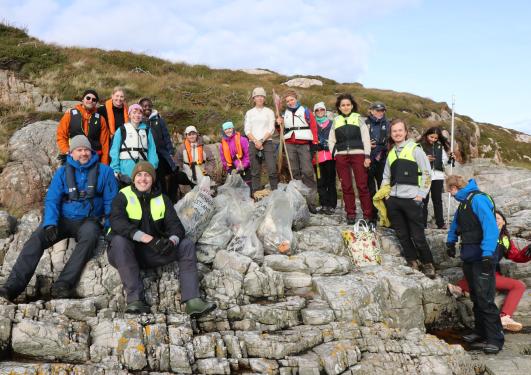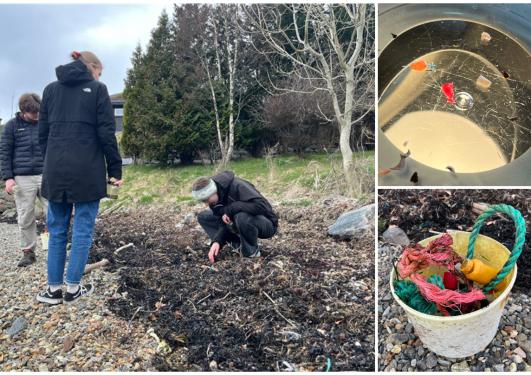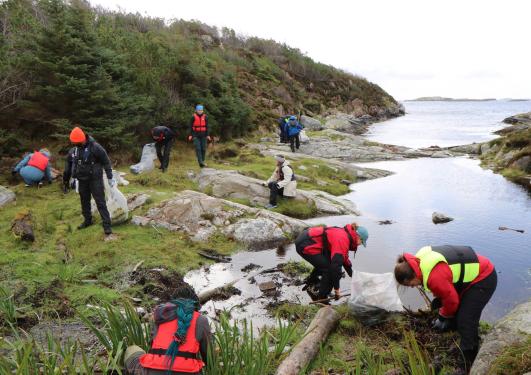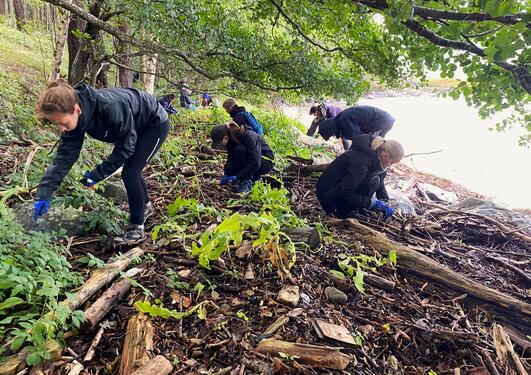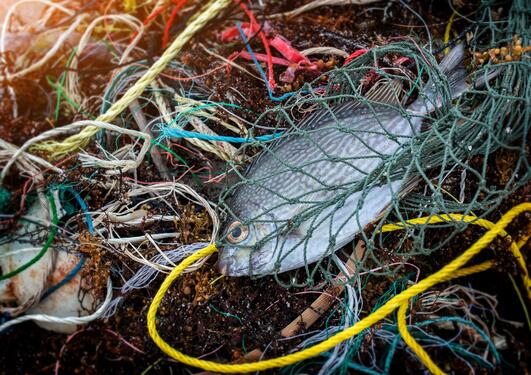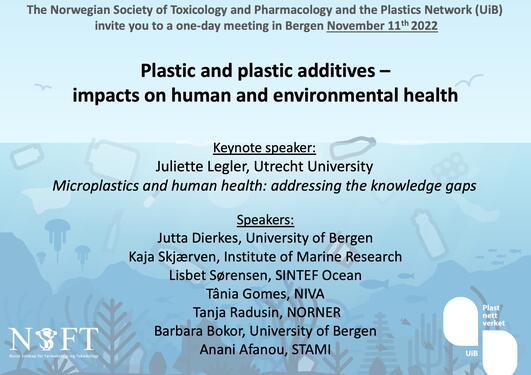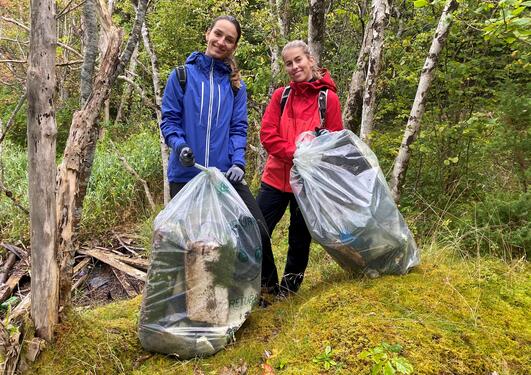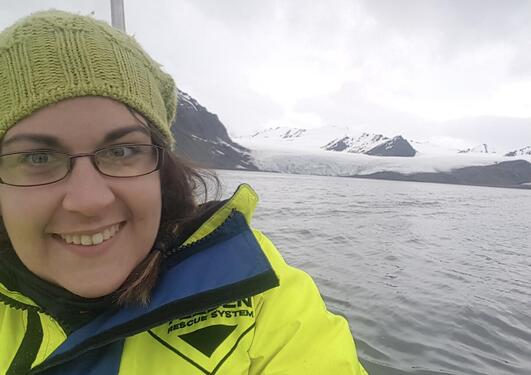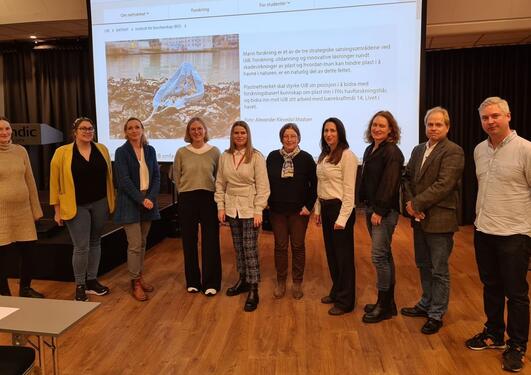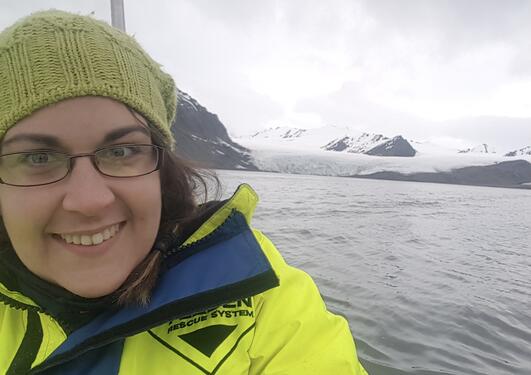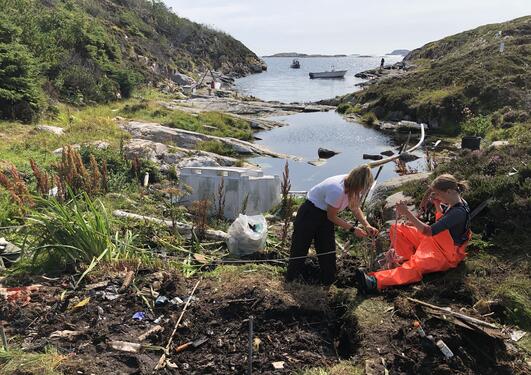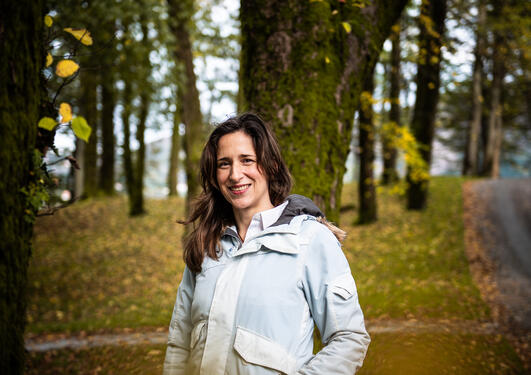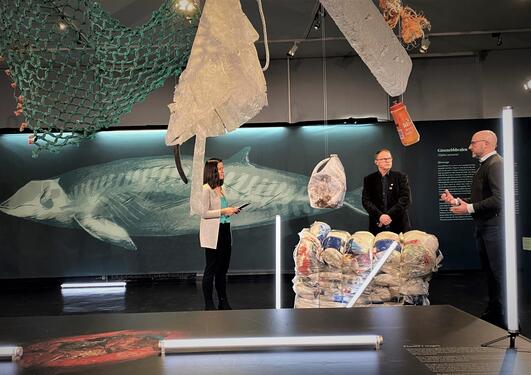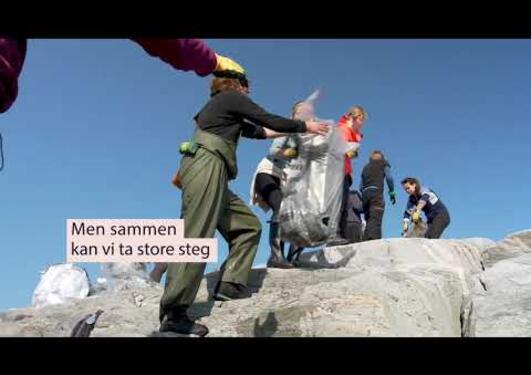News archive for Plastics network
On September 25th, the University of Bergen (UiB) organized a coastal cleanup for students and staff. As last year, the destination was Lisle Lyngøy, often referred to as “Plastic Island” off the coast of Hellesøy. The day was filled with strong impressions — and some good news for the island’s ecosystem.
On April 8–9, 2025, our team had the pleasure of organizing and participating in a hands-on student workshop on microplastics, hosted at the Espeland Marine Biological Station. Nestled by the coast just a short trip from Bergen, this site provided a perfect setting for students from the BIO316 course to immerse themselves in a critical issue facing our oceans: microplastic pollution.
Students and staff from the University of Bergen, together with long-standing partners, cleaned “Plastic Island” Lisle Lyngøy during this year’s plastic cleanup campaign.
On 15 September, the plastic waste clean-up action Rein Hardangerfjord (Clean Hardangerfjord) took place. The Plastics Network at UiB filled a bus with students and staff who wanted to make an effort for the environment.
The Plastics Network (UIB) has launched a plastic lunch seminar series to promote sharing of knowledge on plastics from different scientific perspectives.
In collaboration with the Norwegian Society of Pharmacology and Toxicology (NSFT), the Plastics Network organizes the meeting “Plastic and plastic additives – impacts on human and environmental health” November 11th in Bergen.
30 UiB students and collaborators attended the Rein Hardangerfjord (Clean Hardangerfjord) event the 15th of September. The project has been called “the world’s biggest plastic waste clean-up”. You can see photos from the clean-up in Kvam here.
Publishing data and articles is one of the most important things a researcher does. It is then very important that your publications get noticed and used in further science – and that often means cited.
Finally, the Plastics Network got a chance to gather and for the first time connect their members face-to-face in a seminar 23 November.
"I believe that we have a duty as research scientists to appropriately communicate the global efforts to understand plastic and microplastic pollution," says Amy Lusher, researcher of Environmental Contaminants at NIVA, and at the Department of Biological Sciences at UiB.
In a new research project NORCE, The University of Bergen (UiB) and voluntary organizations are collaborating to find out how plastic pollution affects landscapes along the coast - and what happens when the plastic is removed.
"Politicians need proper advice and that is where we as scientists need to contribute as active researchers and communicators", says Tanja Kögel, a researcher at the Institute of Marine Research, and the Department of Biological Sciences at UiB.
“With this commemoration, the Plastic Whale Heritage alliance and the University of Bergen want to help ensure that the Plastic Whale’s message is not forgotten – the health of our oceans is at stake, and we must act now.”
The University of Bergen and its partners collected four tonnes of plastic waste during this year’s plastic clearing drive. By comparison, 1.5 kg of plastic were found in the stomach of the Plastic Whale.
As part of the University of Bergen’s marine research initiative, an interdisciplinary network on plastic pollution has been set up for researchers, PhD candidates and students.
- September 2025 (1)
- April 2025 (1)
- November 2024 (1)
- September 2023 (1)
- May 2023 (1)
- October 2022 (1)
- September 2022 (1)
- February 2022 (1)
- October 2021 (1)
- September 2021 (1)
- August 2021 (1)
- May 2021 (4)
